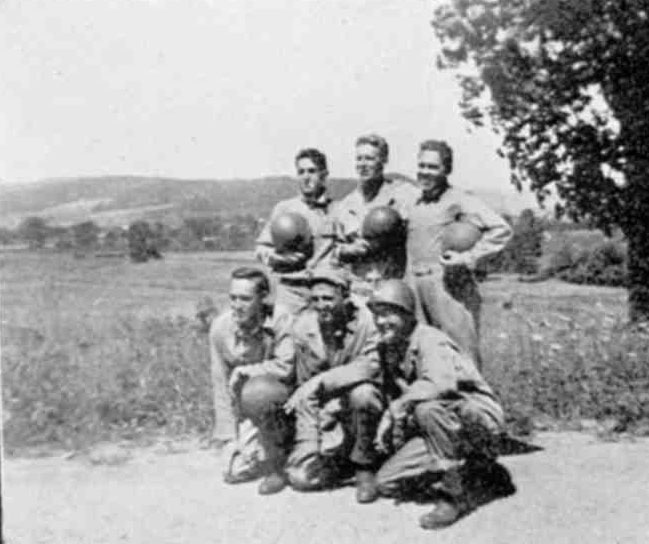
U.S. Government Programs

Civilian Pilot Training Program
This program was first offered to the students at St. Bonaventure in September, 1940 and began to contribute to the anticipated war effort. The course, for civilian students with credit given towards a degree, was a sixteen week program during the school year with the following courses offered: Civil Air Regulations, Meteorology, Navigation, General Science of Aircraft, Primary Flight Program. The Primary Flight Program consisted of thirty-five to forty hours of actual flight training. Upon completion of this program the student received a private pilots license. In July of 1942 the entire program was turned over to the War Department and enrollment was limited to those designated by the Army and Navy for flight training. The program was discontinued in March of 1943. It sent over fifty trained pilots to the Army and Navy.
ROTC- The Reserve Officers Training Corps.
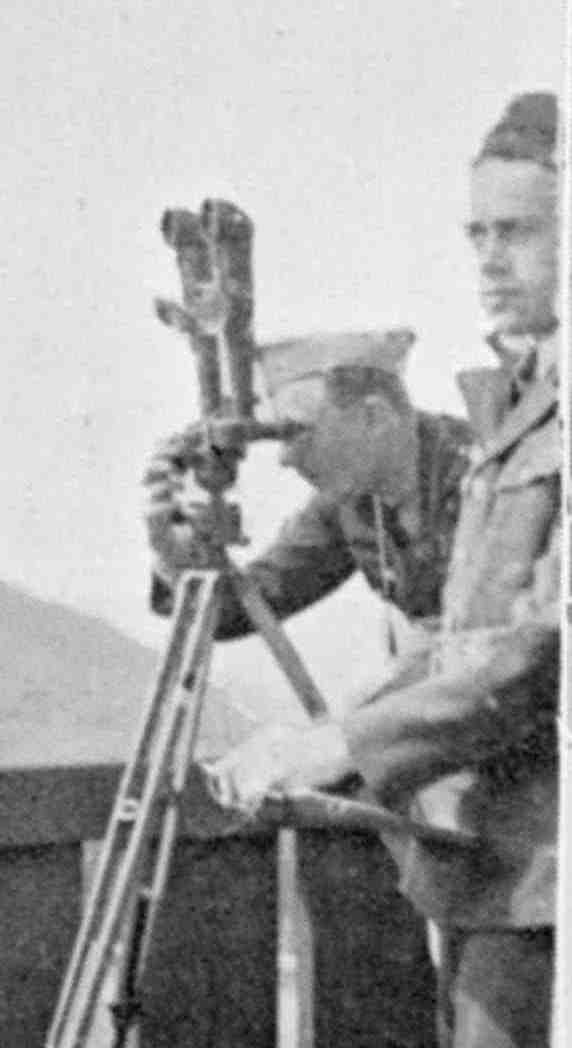 ROTC was established in 1936 at St.
Bonaventure. The unit's
headquarters were in a building behind the Power Plant. During the fall of 1941, with the threat of war looming the program underwent a major
expansion. At this time there were two hundred, sixty men
enlisted in the program. This was one of the first Field Artillery units in
colleges and universities in the United States. Prior to the US involvement in
the war the
program commissioned seven officers into the Army in 1939, followed by twenty officers in 1940. The last year of ROTC at St. Bonaventure was in 1943. The
seniors in the program at that time were sent to Fort Sill, Oklahoma for their
officer basic training and were commissioned in June of that year.
ROTC was established in 1936 at St.
Bonaventure. The unit's
headquarters were in a building behind the Power Plant. During the fall of 1941, with the threat of war looming the program underwent a major
expansion. At this time there were two hundred, sixty men
enlisted in the program. This was one of the first Field Artillery units in
colleges and universities in the United States. Prior to the US involvement in
the war the
program commissioned seven officers into the Army in 1939, followed by twenty officers in 1940. The last year of ROTC at St. Bonaventure was in 1943. The
seniors in the program at that time were sent to Fort Sill, Oklahoma for their
officer basic training and were commissioned in June of that year. 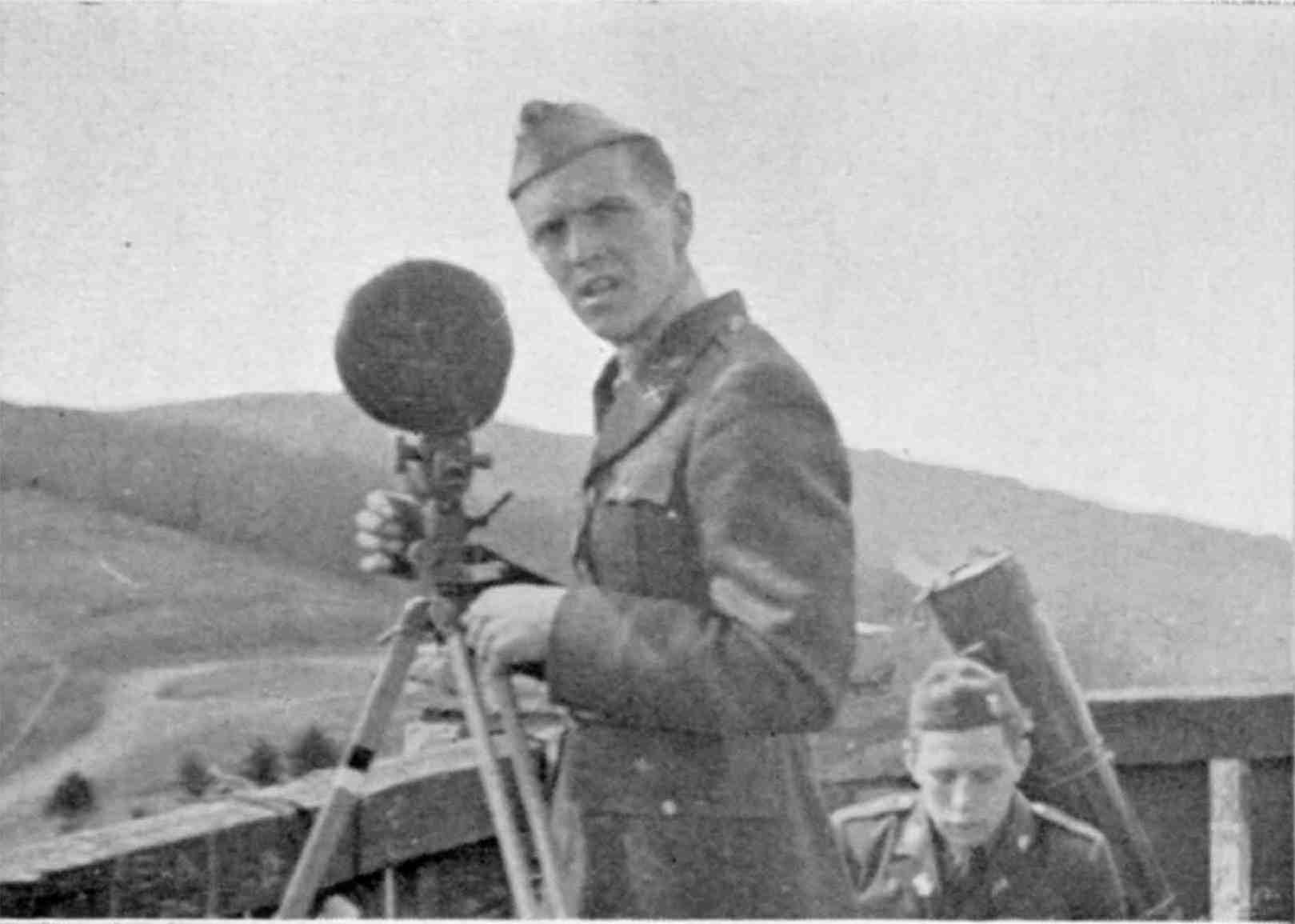 The
Reserve Officers Training Corps was replaced by other programs, but would
eventually return to St. Bonaventure.
The
Reserve Officers Training Corps was replaced by other programs, but would
eventually return to St. Bonaventure.
In these photos officers in training are learning to judge distances and aim their artillery.
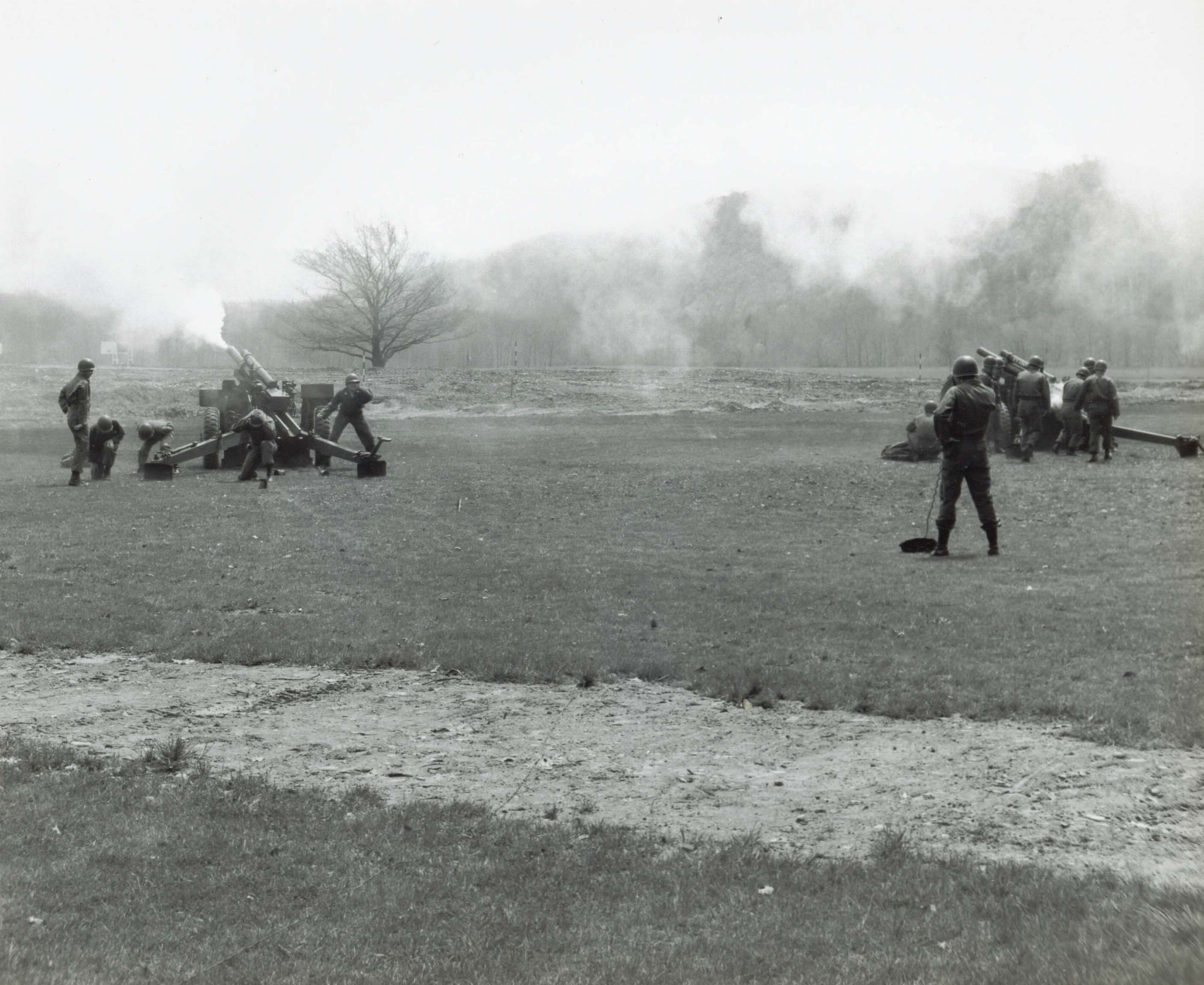
Firing Howitzers
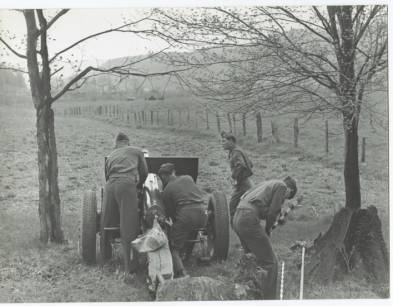
ASTP-
Army Specialized Training Program
ASTP photos
In June, 1943 the first contingent of trainees arrived at St. Bonaventure.
By the end
of the month the school was home to three hundred, twenty cadets. The campus
here was given the same status as an army camp and all rules
were enforced as such. For example, all cadets were expected to wear their
complete army uniforms at all times unless instructed otherwise. The cadets
followed a strict daily schedule beginning and ending with lining up in formation for
roll call. The Unit was named the 3217th Service Command Service Unit
(SCSU 3217). It was formed into a battalion which was subdivided into
companies, platoons, and squads. The soldiers studying here were
officially known as 'Trainees'. They were commanded by Colonel E. T.
Spencer, Commandant.
The purpose of this program was to educate the soldiers with a view to the
development of future officers for the army, and to equip them for certain tasks
for which the Army's training facilities were inadequate. St. Bonaventure proved
to be a second home for these trainees. Many of the trainees befriended the
friars and the surrounding area of Olean and Allegany provided the necessary
social life for the trainees. Places like the YMCA, the Elk's Club and the
American Legion would offer their services to the men by holding socials and dances.
(Reminiscences of an ASTP trainee.)
In February, 1944, the end of the ASTP was announced. This was unexpected, but the program was discontinued by April 1,1944. This included all schools that had opened their doors to the government programs. Father Thomas Plassmann, university president at the time, believed that St. Bonaventure would soon be home to another program dedicated to the war effort. He was correct.
ASTRP- Army Reserve Specialized Training Program
In 1944 the War Department established a pre-induction program for seventeen year olds. Students in this program were considered to be in the Army Reserve. By July of 1944 the first contingent of 250 trainees arrived at St. Bonaventure and the Army routine re-commenced. When courses ended in December of 1944, the Army training at St. Bonaventure also ended. St. Bonaventure was one of three hundred institutions used as training centers for the war effort and was rightly commended by the United States government for its assistance.
---------------------------------------------------------------------